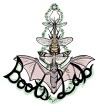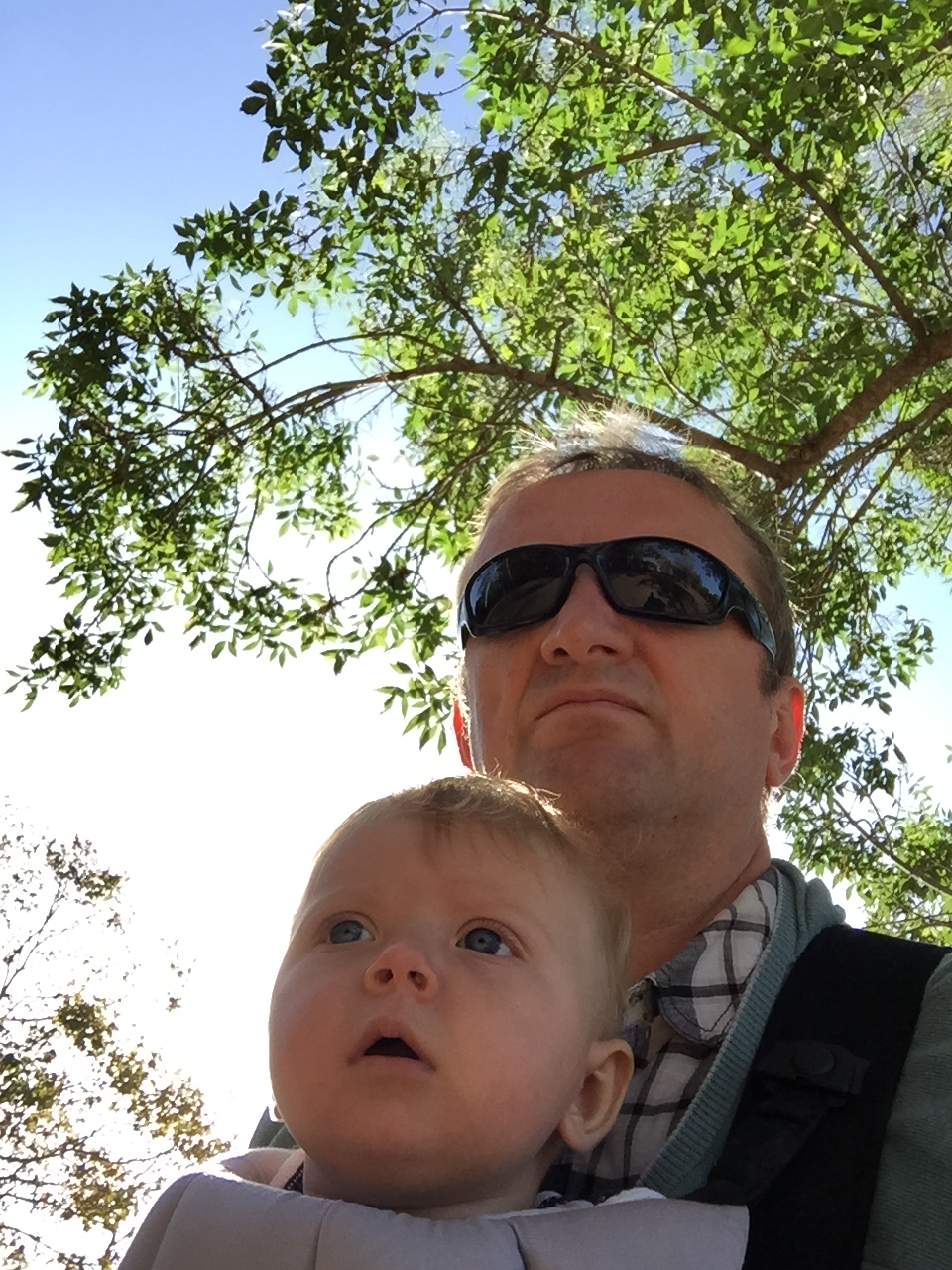 Mike Boots: After a mostly empirical PhD at Liverpool, I held a JSPS Postdoctoral fellowship in the Entomology Department of Kyoto University and a European Union Postdoctoral Fellowship in the mathematical biology group in Kyushu. I then worked in the medical entomology department of the Institute of Tropical Medicine, applying mathematical models to problems in human disease interactions and working on vector ecology in the medical entomology department. I returned to the UK in 2000, on a NERC Advanced Fellowship, and subsequently held Readerships at the Universities of Stirling and Sheffield. I was made Professor of Disease Biology in the Department of Animal and Plant Sciences in Sheffield in 2007, moved to Exeter in 2011, and to UC Berkeley in 2015. My Google Scholar profile is here.
Mike Boots: After a mostly empirical PhD at Liverpool, I held a JSPS Postdoctoral fellowship in the Entomology Department of Kyoto University and a European Union Postdoctoral Fellowship in the mathematical biology group in Kyushu. I then worked in the medical entomology department of the Institute of Tropical Medicine, applying mathematical models to problems in human disease interactions and working on vector ecology in the medical entomology department. I returned to the UK in 2000, on a NERC Advanced Fellowship, and subsequently held Readerships at the Universities of Stirling and Sheffield. I was made Professor of Disease Biology in the Department of Animal and Plant Sciences in Sheffield in 2007, moved to Exeter in 2011, and to UC Berkeley in 2015. My Google Scholar profile is here.
Postdoctoral Researchers
 Alexandra Brown: I am interested in modeling evolution in symbiotic relationships, particularly in response to changing costs and benefits of symbiosis. I am currently working on models of aquatic symbiosis and host-microbiome evolution. Previously, I did postdoc research at UCSB on models of tree-fungal symbiosis (with Dr. Stephen Proulx) and coral symbiosis (with Drs. Holly Moehler, Ross Cunning, and Roger Nisbet). I did my PhD at the University of Pennsylvania with Dr. Ecol Akçay, studying transmission evolution in conditionally beneficial symbioses. I got my undergraduate degree at Brown University, where I worked in Dr. Dan Weinreich’s lab modeling bacteriophage evolution. Alexandra’s Google Scholar.
Alexandra Brown: I am interested in modeling evolution in symbiotic relationships, particularly in response to changing costs and benefits of symbiosis. I am currently working on models of aquatic symbiosis and host-microbiome evolution. Previously, I did postdoc research at UCSB on models of tree-fungal symbiosis (with Dr. Stephen Proulx) and coral symbiosis (with Drs. Holly Moehler, Ross Cunning, and Roger Nisbet). I did my PhD at the University of Pennsylvania with Dr. Ecol Akçay, studying transmission evolution in conditionally beneficial symbioses. I got my undergraduate degree at Brown University, where I worked in Dr. Dan Weinreich’s lab modeling bacteriophage evolution. Alexandra’s Google Scholar.
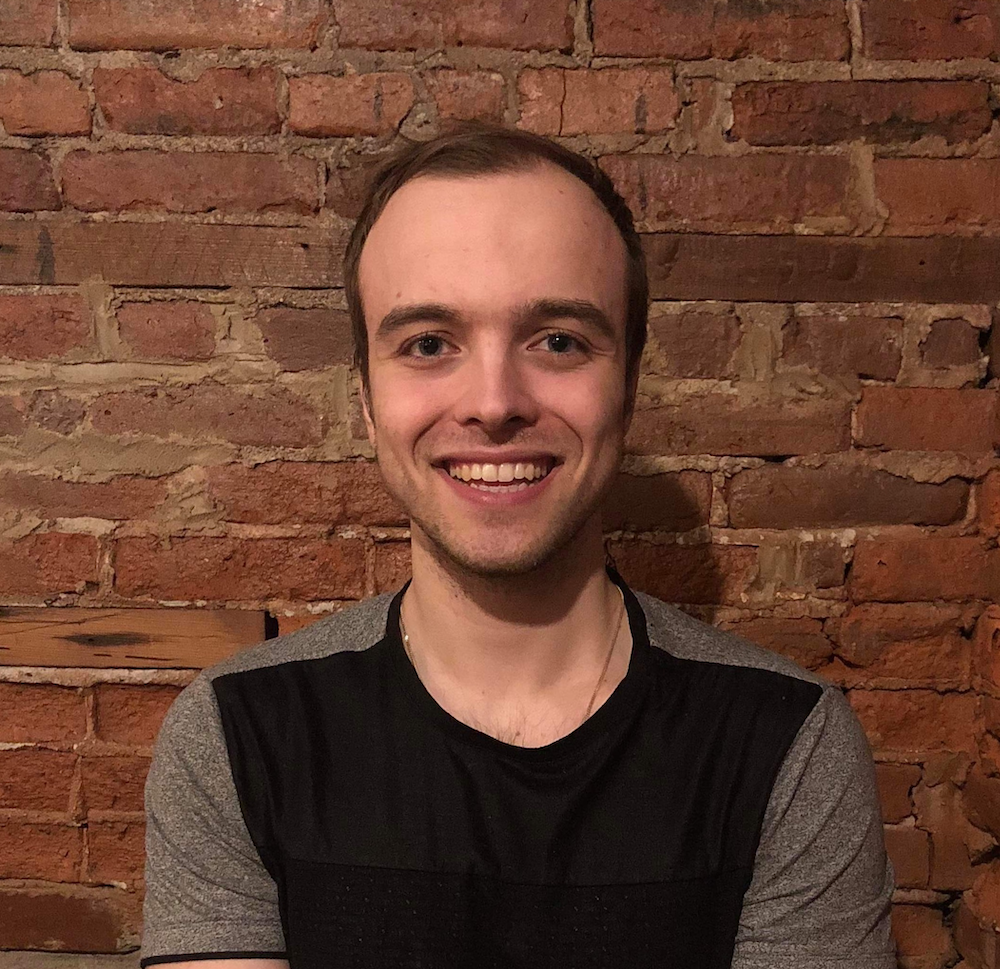 Chadi Saad-Roy: I am currently a Miller Research Fellow at UC Berkeley. I completed my PhD in Quantitative and Computational Biology at Princeton University, where I was co-advised by Bryan Grenfell, Simon Levin, and Ned Wingreen. Before that, I obtained my BSc at the University of Victoria (in Victoria, British Columbia), where I worked with Pauline van den Driessche. Broadly, I am interested in mathematical models for the epidemiology and evolution of infectious diseases, with a major recent focus on SARS-CoV-2. Chadi’s Website, Google Scholar, Twitter, ResearchGate.
Chadi Saad-Roy: I am currently a Miller Research Fellow at UC Berkeley. I completed my PhD in Quantitative and Computational Biology at Princeton University, where I was co-advised by Bryan Grenfell, Simon Levin, and Ned Wingreen. Before that, I obtained my BSc at the University of Victoria (in Victoria, British Columbia), where I worked with Pauline van den Driessche. Broadly, I am interested in mathematical models for the epidemiology and evolution of infectious diseases, with a major recent focus on SARS-CoV-2. Chadi’s Website, Google Scholar, Twitter, ResearchGate.
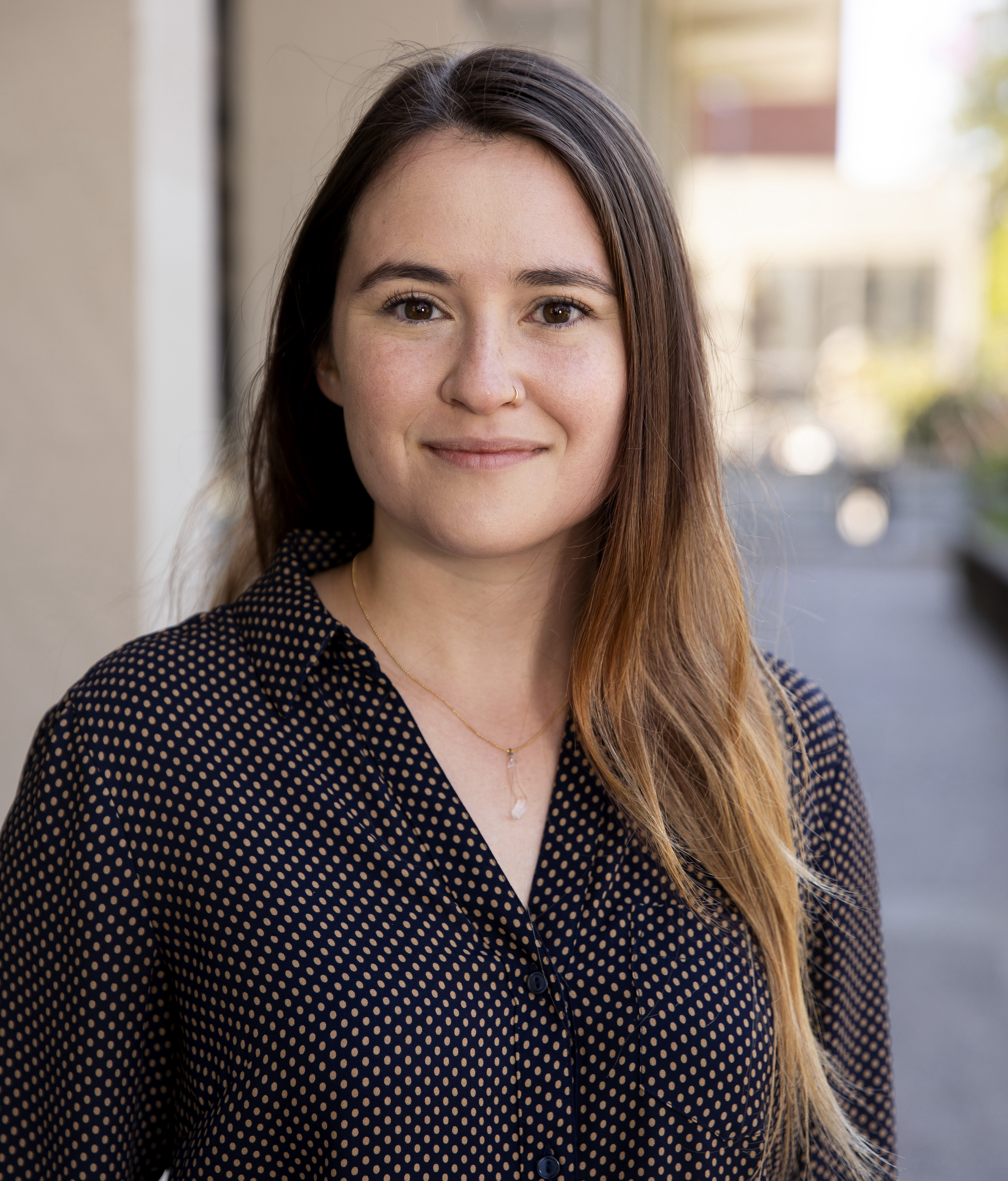 Signe White: My primary research project in the Boots Lab involves understanding the effects of multiple heterogeneities (population structure, transmission, and host-parasite interaction specificity) on pathogen virulence and host defense. I also have side quests in how phoresy (hitchhiking) and migration/dispersal impact host-parasite dynamics. I received my Bachelors degrees at Indiana University and then went on to be a research assistant with Dr. Kristi Montooth, where I learned the fundamentals of evolutionary genetics. I then received a PhD at Emory University in Population Biology, Ecology, and Evolution with Drs. Levi Morran and Jaap de Roode. Signe’s Website, Twitter, Research Gate, Google Scholar.
Signe White: My primary research project in the Boots Lab involves understanding the effects of multiple heterogeneities (population structure, transmission, and host-parasite interaction specificity) on pathogen virulence and host defense. I also have side quests in how phoresy (hitchhiking) and migration/dispersal impact host-parasite dynamics. I received my Bachelors degrees at Indiana University and then went on to be a research assistant with Dr. Kristi Montooth, where I learned the fundamentals of evolutionary genetics. I then received a PhD at Emory University in Population Biology, Ecology, and Evolution with Drs. Levi Morran and Jaap de Roode. Signe’s Website, Twitter, Research Gate, Google Scholar.
Graduate Students
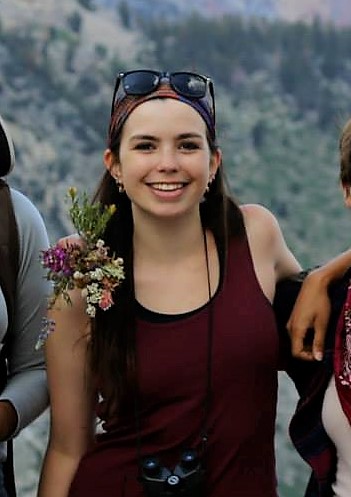 Nina Sokolov (IB): I joined the Boots’ lab in 2018 where I aim to combine my interests in insect diversity and evolutionary ecology with problems in infectious disease. I am particularly interested in the epidemiology of diseases in wild bees. Broadly I want to look at how fluxes in host population density influence disease dynamics. I plan to look at the impact of honey bee importations to California for crop pollination on the prevalence of pathogens, both within honey bees and spill over into native wild bees. Prior to starting at UC Berkeley, I had graduated from the University of Toronto in 2016 with a BS in Ecology and Evolutionary Biology. Afterwards I worked as a research assistant in Dr. Hopi Hoekstra’s lab at Harvard University and had research internships with Dr. Naomi Pierce and Dr. Brian Farrell.
Nina Sokolov (IB): I joined the Boots’ lab in 2018 where I aim to combine my interests in insect diversity and evolutionary ecology with problems in infectious disease. I am particularly interested in the epidemiology of diseases in wild bees. Broadly I want to look at how fluxes in host population density influence disease dynamics. I plan to look at the impact of honey bee importations to California for crop pollination on the prevalence of pathogens, both within honey bees and spill over into native wild bees. Prior to starting at UC Berkeley, I had graduated from the University of Toronto in 2016 with a BS in Ecology and Evolutionary Biology. Afterwards I worked as a research assistant in Dr. Hopi Hoekstra’s lab at Harvard University and had research internships with Dr. Naomi Pierce and Dr. Brian Farrell.
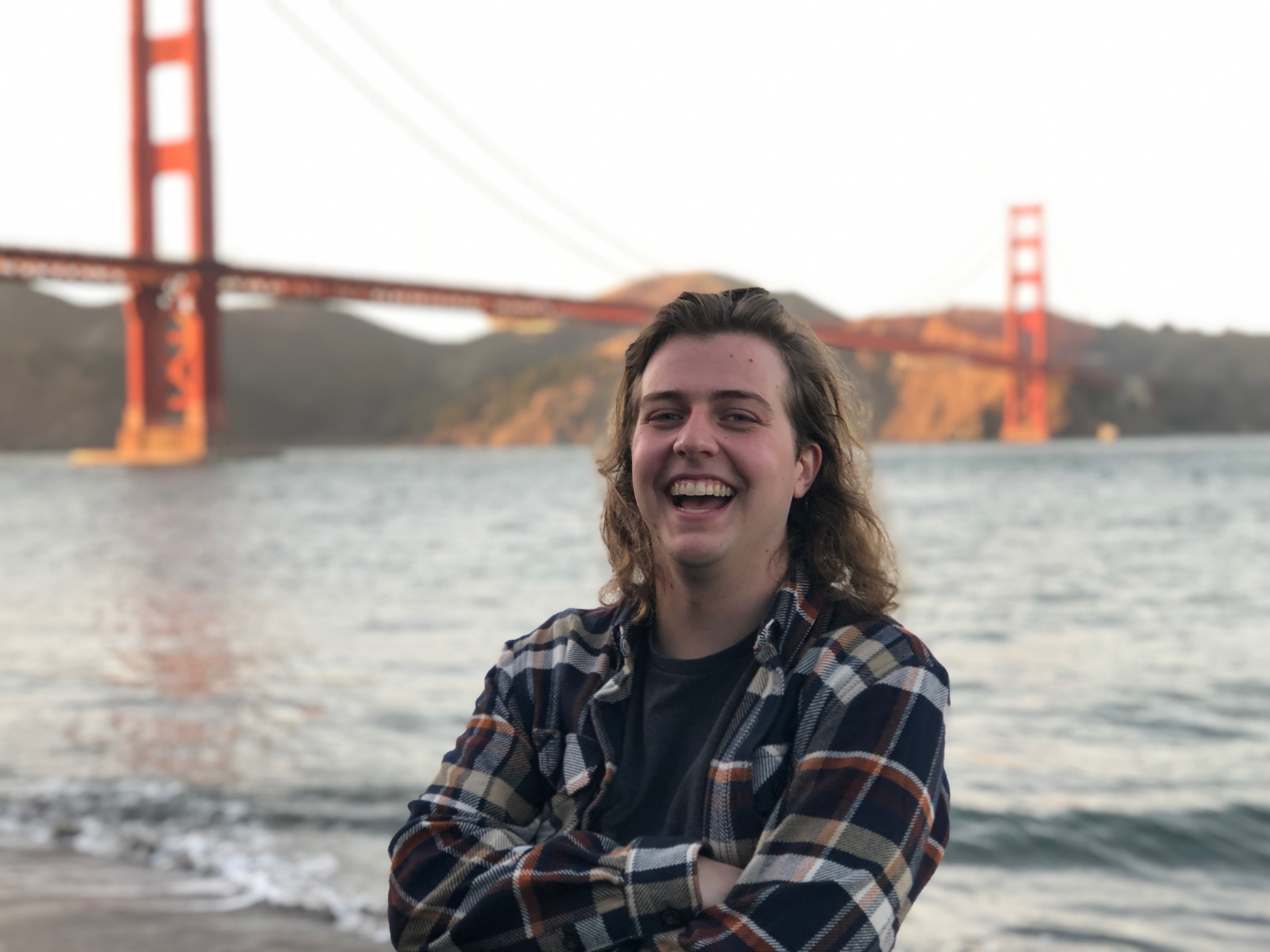 Graham Northrup (CCB): I moved to Berkeley in 2018 to begin my PhD in Computational Biology, co-advised by Mike Boots and Joe Lewnard. Previously, I graduated from the University of Chicago with a BS in Computational and Applied Mathematics. There I had the opportunity to work under Sarah Cobey on modeling B Cell selection. Now at UC Berkeley, my current projects aim to leverage quantitative methods to incorporate ideas and fundamentals from various traditions such as ecology and epidemiology into a more interdisciplinary approach for modeling disease evolution in a community context. I am also interested in using these insights to study recurrent infection processes and build better models of acquired immunity.
Graham Northrup (CCB): I moved to Berkeley in 2018 to begin my PhD in Computational Biology, co-advised by Mike Boots and Joe Lewnard. Previously, I graduated from the University of Chicago with a BS in Computational and Applied Mathematics. There I had the opportunity to work under Sarah Cobey on modeling B Cell selection. Now at UC Berkeley, my current projects aim to leverage quantitative methods to incorporate ideas and fundamentals from various traditions such as ecology and epidemiology into a more interdisciplinary approach for modeling disease evolution in a community context. I am also interested in using these insights to study recurrent infection processes and build better models of acquired immunity.
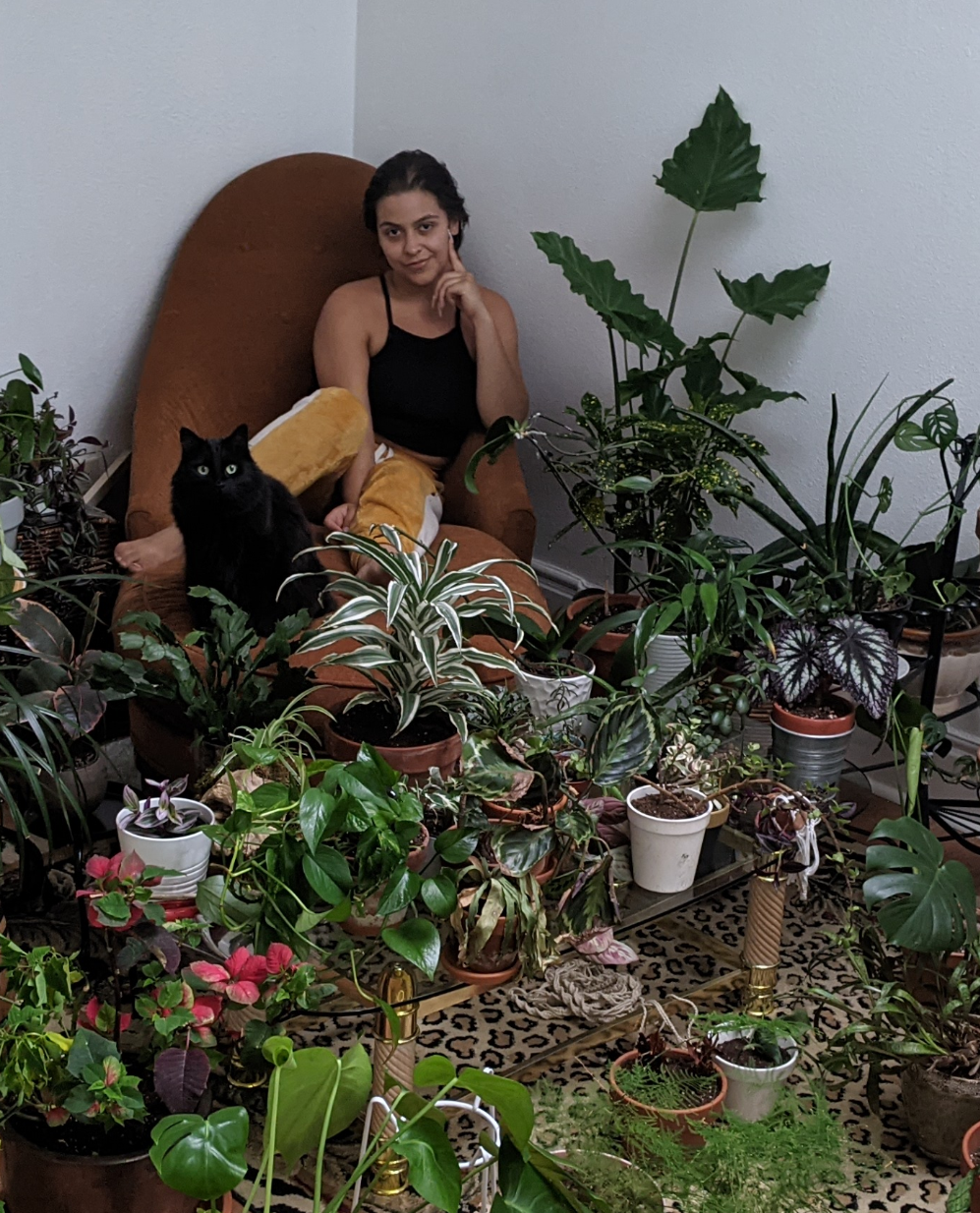 Sara Herrejon Chavez (IB): I joined the Boots lab in the fall of 2021 and study disease ecology as it relates to keystone pollinators, such as bees. My project focuses on furthering our understanding of disease dynamics between pollinator networks, using pollen as an indicator of shared resources between wild and domestic bee populations. As an undergrad at Portland State University, I worked under several faculty members, including: Dr. Todd Rosenstiel, Dr. Sarah Epply, and Dr. Daniel Ballhorn. Working with these faculty members gave me experience within the field of microbial biology and community ecology. I also participated in research via several summer research initiatives (REU programs) both at Portland State and the Cary Institute, where I gained experience in research broadly focusing on urban ecology. As an undergrad, I was also heavily involved in DEI initiatives that allowed me to gain perspectives and experiences in mentoring, teaching, and curriculum development.
Sara Herrejon Chavez (IB): I joined the Boots lab in the fall of 2021 and study disease ecology as it relates to keystone pollinators, such as bees. My project focuses on furthering our understanding of disease dynamics between pollinator networks, using pollen as an indicator of shared resources between wild and domestic bee populations. As an undergrad at Portland State University, I worked under several faculty members, including: Dr. Todd Rosenstiel, Dr. Sarah Epply, and Dr. Daniel Ballhorn. Working with these faculty members gave me experience within the field of microbial biology and community ecology. I also participated in research via several summer research initiatives (REU programs) both at Portland State and the Cary Institute, where I gained experience in research broadly focusing on urban ecology. As an undergrad, I was also heavily involved in DEI initiatives that allowed me to gain perspectives and experiences in mentoring, teaching, and curriculum development.
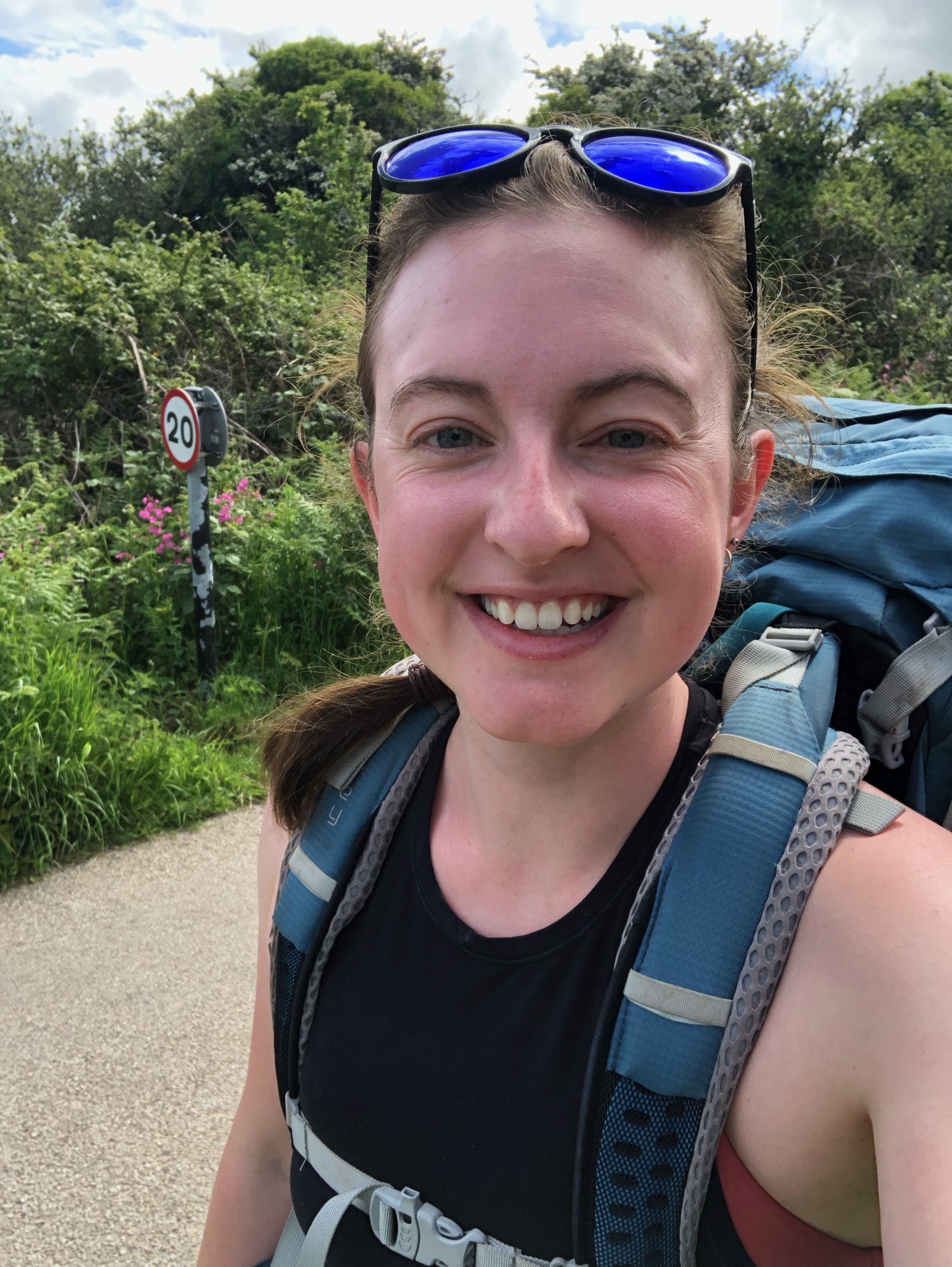 Claire Evensen (IB): I started my PhD in the Boots lab in 2021 (co-advised by Britt Koskella), and I’m broadly interested in coevolution in complex communities. My projects utilize both wet-lab and dry-lab tools from community ecology, microbiology, epidemiology, and network theory to explore how community diversity is established and maintained. I previously studied Biochemistry and Mathematics at the University of Wisconsin-Madison, where I worked with Tom Record on transcription kinetics. After graduating, I pursued an MSc in Mathematical Modelling and Scientific Computing at Oxford, where I worked with Renaud Lambiotte on network dynamical systems.
Claire Evensen (IB): I started my PhD in the Boots lab in 2021 (co-advised by Britt Koskella), and I’m broadly interested in coevolution in complex communities. My projects utilize both wet-lab and dry-lab tools from community ecology, microbiology, epidemiology, and network theory to explore how community diversity is established and maintained. I previously studied Biochemistry and Mathematics at the University of Wisconsin-Madison, where I worked with Tom Record on transcription kinetics. After graduating, I pursued an MSc in Mathematical Modelling and Scientific Computing at Oxford, where I worked with Renaud Lambiotte on network dynamical systems.
 John Lo (CCB): I joined the Boots Lab and the Sudmant Lab in 2022 as a PhD student at the Center for Computational Biology. My interests range from coevolutionary dynamics, evolution of aging, and niche construction to science philosophy and political ecology. I’m specifically fascinated by how coevolutionary dynamics and, more broadly, eco-evolutionary feedbacks can produce and maintain complexity and diversity, particularly in fishes. Previously, I studied the evolution of microsatellites and retrogenes in the Blackmon Lab at Texas A&M while earning BS degrees in Statistics and Molecular Biology.
John Lo (CCB): I joined the Boots Lab and the Sudmant Lab in 2022 as a PhD student at the Center for Computational Biology. My interests range from coevolutionary dynamics, evolution of aging, and niche construction to science philosophy and political ecology. I’m specifically fascinated by how coevolutionary dynamics and, more broadly, eco-evolutionary feedbacks can produce and maintain complexity and diversity, particularly in fishes. Previously, I studied the evolution of microsatellites and retrogenes in the Blackmon Lab at Texas A&M while earning BS degrees in Statistics and Molecular Biology.
Darian Doakes (PMB): I started my Microbiology PhD in 2022 and joined the Boots lab (co-advised by Britt Koskella) in Spring 2023. I am interested in adaptive fitness of horizontal gene transfer in bacterial communities. I focus on dynamics of mobile genetic elements such as bacteriophage. I hope to corroborate my research using both adaptive dynamics and empirical techniques. In undergrad, I studied Ecology and Evolution with an emphasis in Microbiology at the University of Chicago. I then joined Tera Levin’s lab at the University of Pittsburgh where I studied Red Queen co-evolution of Legionella pneumophila bacteria and their natural predators, Dictyostelium discoideum amoebae, in vitro.
Undergraduate Students
Students working on bees with Nina Sokolov:
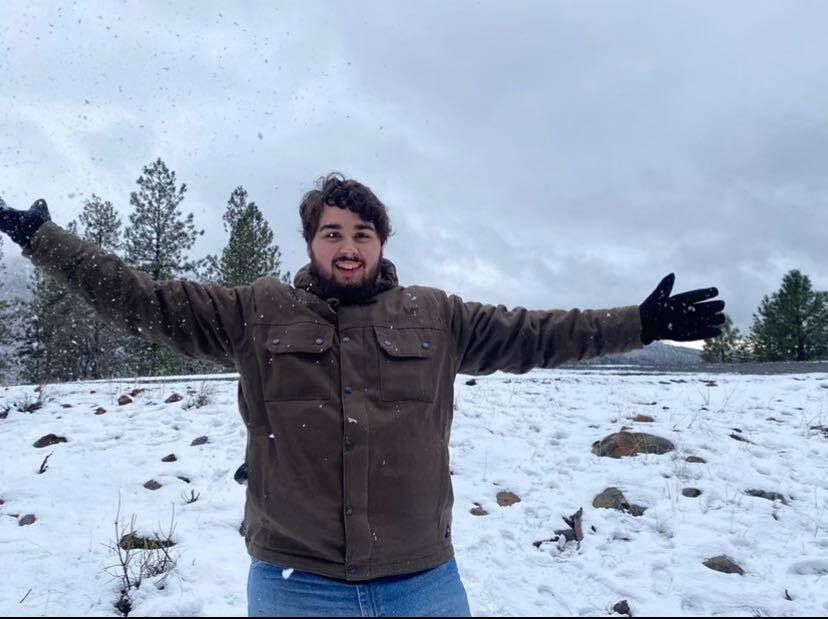 Ricky Pankratz: I came to UC Berkeley from the shores of Clear Lake to study Environmental Sciences and learn more about the harmful algal blooms affecting my hometown. Here I developed an interest in ecology, evolution, environmental justice, and working with ecological data. I am also a member of the inaugural cohort of the SEED Scholars Honors Program.
Ricky Pankratz: I came to UC Berkeley from the shores of Clear Lake to study Environmental Sciences and learn more about the harmful algal blooms affecting my hometown. Here I developed an interest in ecology, evolution, environmental justice, and working with ecological data. I am also a member of the inaugural cohort of the SEED Scholars Honors Program.
- Anna Hatzakis
- Seva Hatip
Students working in the Plodia lab with Signe White:
- Zucel Yadira Rodriguez
- Natalie Walzer
- Hailey Burnsed
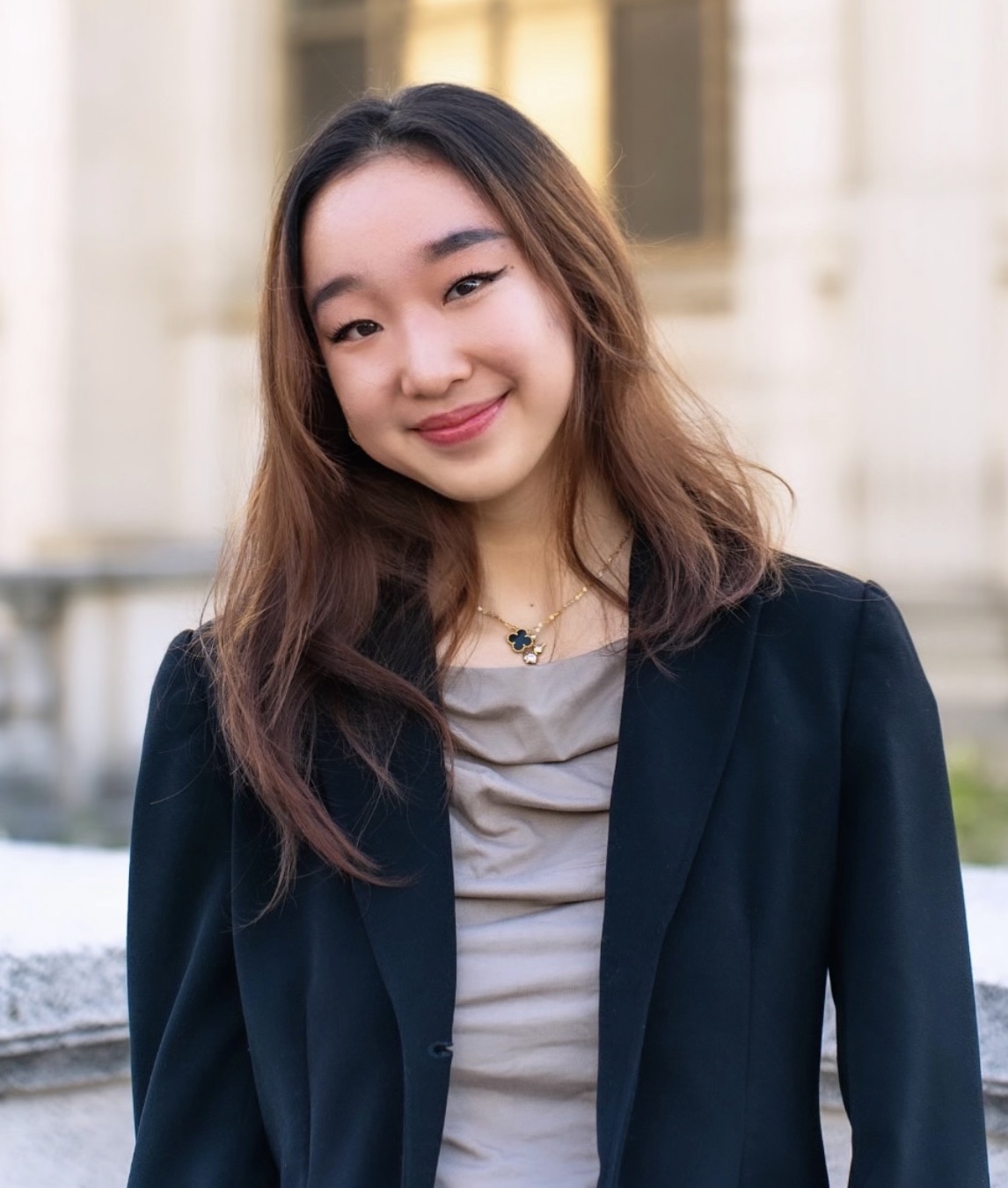 Emily Qi:
Emily Qi: ![]() ! I’m a freshman from sunny LA, enthusiastic about the intersection of my majors: biology and data science. In the Boots Lab, I am exploring virus resistance and the inheritance of traits stemming from these developments. I’m primarily interested in helping better understand resistance’s highly polygenic characteristics and the associated trade-offs. By unraveling the intricacies of these biological phenomena, I hope to contribute to a deeper understanding of how organisms adapt and evolve in response to viral challenge.
! I’m a freshman from sunny LA, enthusiastic about the intersection of my majors: biology and data science. In the Boots Lab, I am exploring virus resistance and the inheritance of traits stemming from these developments. I’m primarily interested in helping better understand resistance’s highly polygenic characteristics and the associated trade-offs. By unraveling the intricacies of these biological phenomena, I hope to contribute to a deeper understanding of how organisms adapt and evolve in response to viral challenge.
See our Boots Lab Alumni too!
IB = Integrative Biology
CCB = Center for Computational Biology
PMB = Plant & Microbial Biology
